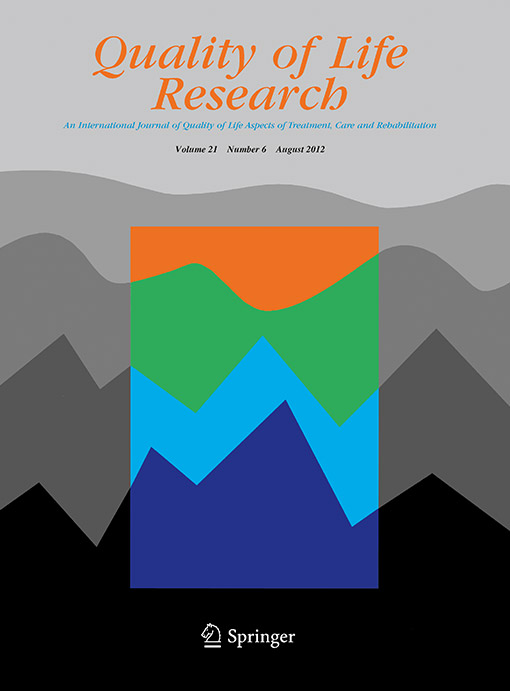“Methodologies and Considerations for Meaningful Change”
The editors of Quality of Life Research are planning a special issue to define and explore both existing and novel methods for defining meaningful change thresholds for clinical outcomes assessments (COAs) such as patient or clinician reported outcomes measures. Meaningful change, the amount an individual or a group must improve or worsen by to show an effect that patients find meaningful, is important for understanding the efficacy of an intervention. However, there are several methods for defining and determining meaningful change, which vary depending on the research question being addressed and the accompanying study design.
The editors are seeking contributions defining, explaining, comparing and evaluating specific meaningful change methodologies. This can include but is not limited to:
- Mean-based assessment of meaningful change (within/between groups) using anchors
- Receiver operating characteristic (ROC) curve-based methods with anchors
- Predictive modelling-based methods using anchors
- Latent variable based methods such as Rasch and IRT
- Graphical methods such as Cumulative Distribution Function curves
- Qualitative and Mixed methods approaches
- Appropriate anchor selection
- Appraising existing literature based thresholds
- Combining or comparing multiple thresholds
Letters of intent are due 22 December 2020.
Click the button below for further information about the call and how to submit letters of intent.

The International Society for Quality of Life Research (ISOQOL) is a global community of researchers, clinicians, health care professionals, industry professionals, consultants, and patient research partners advancing health related quality of life research (HRQL).
Together, we are creating a future in which patient perspective is integral to health research, care and policy.

